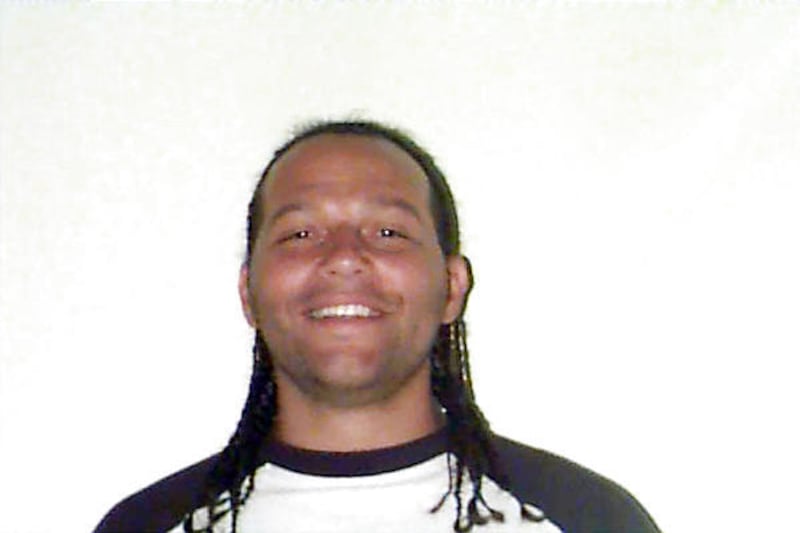UTAH STATE PRISON — One of the most dangerous inmates here has been subpoenaed to testify in an upcoming trial.
But state officials refused to allow death row inmate Troy Kell to be released from prison to appear on the witness stand next week in a former inmate's million dollar lawsuit against the Utah Department of Corrections.
Jacques Dupree Miranda accuses prison guards of allowing Kell, a known white supremacist, out of his cell to attack Miranda, a black Muslim. It happened in the aftermath of the terrorist attacks of Sept. 11, 2001.
"The guards in the unit were upset with Miranda following the 9/11/01 terror attacks and relayed information to Troy Kell, a white supremacist, to attempt to incite Kell to violence towards Miranda," attorney David Pace wrote in the lawsuit filed in 2003.
Miranda claims in his lawsuit that he'd been targeted by other inmates to be killed. On Sept. 20, 2001, the lawsuit claims, two guards gave Kell a pair of caricatures of Osama bin Laden. An officer is accused of asking Miranda to draw similar caricatures of the terrorist leaders.
"Miranda refused to comply with officer Ray's request because of his religious beliefs as a Muslim," Pace wrote. "The officer asked Miranda to be patriotic, to which Miranda said that he didn't feel very patriotic being locked up, which seemed to upset the officer."
While Miranda was on recreation time in his cell block, he claims Kell asked for his cell door to be opened and an officer laughed: "OK, yeah, as long as you promise not to kill Miranda."
"Officer Healey then opened Kell's door and Kell promptly exited his cell and attacked Miranda," Pace wrote in the lawsuit. "Miranda fought and ran from Kell through the cell block, waiting for a response team to enter and defuse the situation."
That help never came, Miranda claims.
"While Kell pursued Miranda, and while they fought, Kell continually referred to Miranda as a Muslim, as a rag-head, as someone wanting to blow things up — all relating to what had just upset the guards about Miranda," Pace wrote, saying that Miranda ran into his cell where Kell choked him into unconsciousness.
Miranda's lawsuit has been killed and resurrected before as it wound its way to trial. As part of their case, Miranda's attorney sought to have Kell handed over to U.S. marshals and transported to the U.S. District Courthouse in downtown Salt Lake City to testify. Other inmates and officers are also on the witness list.
Authorities resisted efforts to have Kell taken out of his maximum security unit at Point of the Mountain, where he is only allowed out for 15 minutes every other day. The Utah Attorney General's Office filed a motion under seal to have Kell testify via video conference from the prison. Pace filed a writ of habeas corpus seeking to have Kell brought to the federal courthouse. That led to an in-chambers huddle with U.S. District Judge Ted Stewart over whether to transport him.
In a ruling released late Tuesday, Stewart said the security concerns over Kell make it unfeasible to testify in person.
"We're thankful Judge Steward recognizes the serious risk to public safety that this requirement posed," state corrections spokeswoman Angie Welling said, declining to comment on the lawsuit itself.
Kell is a notoriously dangerous inmate. In 1994, while incarcerated at the Central Utah Correctional Facility in Gunnison, he stabbed fellow inmate Lonnie Blackmon 67 times with a homemade knife. The racially motivated slaying (Blackmon was black) was gruesome — Blackmon was stabbed in the neck, chest, face and eyes, and Kell shouted "white power" while strutting around afterward.
The Sanpete county attorney recently filed to have Kell's stay of execution lifted.
Internal prison grievance forms included with the lawsuit said that corrections brass did find one officer made an "inappropriate comment" and a "poor decision" to allow Kell out. The officer did try to shut Miranda's cell, "however the door did not respond fast enough to thwart the efforts of inmate Kell."
Miranda sought to be moved out of Uinta 1, the prison's maximum security facility, but was denied. It was in part because of his convictions: aggravated robbery, obstruction of justice and drug charges. He was paroled in May 2006.
E-MAIL: bwinslow@desnews.com

